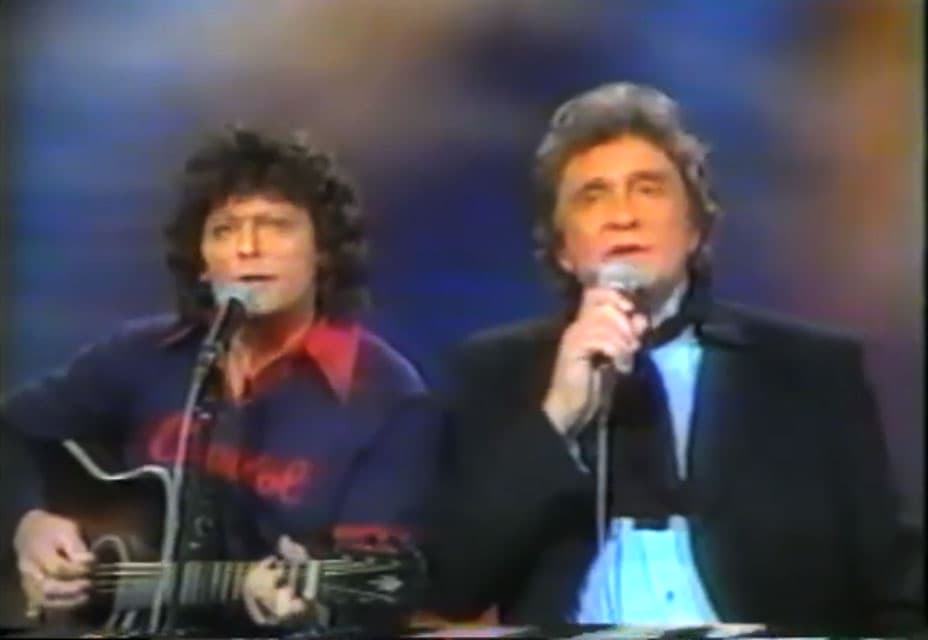
The Nameless Ghosts of Los Gatos: An Unflinching Ballad of the Forgotten
“Deportee (Plane Wreck at Los Gatos)” is Woody Guthrie’s timeless folk lament, a scorching protest against the systemic dehumanization of migrant workers, given new, heartbreaking urgency by Johnny Cash and Johnny Rodriguez in their powerful 1987 live rendition.
For those of us who grew up listening to the resonant, moral compass that was Johnny Cash, certain songs—even ones he borrowed—stand out not just as music, but as vital lessons in humanity. His 1987 live performance of “Deportee (Plane Wreck at Los Gatos)” with the great Tejano artist Johnny Rodriguez is one such moment, a stark, profound echo in the American songbook. This powerful protest song, penned by the legendary Woody Guthrie, never actually hit the commercial charts as a single in this form, existing instead as a critical live document and a staple of the folk and country counter-narrative. The original, tragic event that inspired the song took place decades earlier, on January 28, 1948, when a chartered plane carrying 32 people—four American crew members and 28 Mexican migrant farm workers—crashed in Los Gatos Canyon, California. The workers, who had toiled in the fields under programs like the Bracero agreement, were being summarily deported back to Mexico.
The appalling story behind this song is what gives it its immortal gravity. Woody Guthrie, living in New York at the time, was so enraged by the callous news reports that followed the crash that he wrote the lyrics in a fury. While the American crew members were immediately identified by name, the 28 Mexican victims were referred to only as “deportees.” They were nameless statistics, their lives and identities utterly erased by a racist system and an indifferent media. They were eventually buried in a mass grave, marked only as “Mexican Nationals.” Guthrie‘s lyrics became a desperate attempt to restore their humanity, assigning them symbolic, tender names like “Juan, Rosalita, Jesús y María,” so they would not ride “the big airplane” without a trace of dignity. A decade after Guthrie wrote the poem, teacher Martin Hoffman composed the haunting melody that turned it into the definitive folk standard it is today.
Cash, a man known for his deep empathy toward the marginalized—the prisoner, the poor, the Native American—was the perfect vessel for this song’s moral outcry. The 1987 performance, often associated with his later-career resurgence and his work with The Highwaymen, saw him sharing the stage with Johnny Rodriguez, a fellow Texan country singer of Mexican descent. Their duet is more than just a cover; it’s an act of cultural solidarity. Cash’s gravelly, world-weary baritone delivers Guthrie‘s words with the weight of years and experience, while Rodriguez‘s smoother, poignant voice brings an authentic, immediate connection to the cultural heritage of the forgotten workers. For listeners of a certain age, who remember a time when country and folk music were the conscience of America, this performance is a profound reminder of the genre’s enduring power to speak truth to power. It’s a nostalgic echo of the era when music stirred the soul and pushed for justice, keeping the memory of the “scattered like dry leaves” alive, forcing us to remember that every “Deportee” has a name, a life, and a story. The sheer emotional weight of these two giants standing side-by-side, lending their voices to the nameless dead, is what secures this rendition its place not just in music history, but in the history of American advocacy.